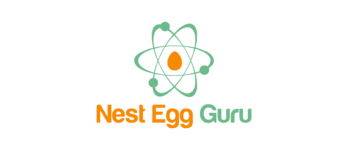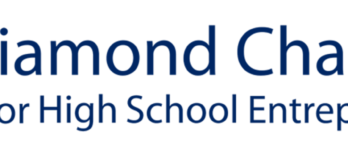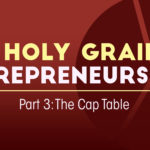
OneSeventeen Media provides a suite of mobile apps smart enough to help kids make wiser decisions on the fly. We are based on customer-identified gaps for effective real-time classroom behavior management tools.

Beth Carls, CEO
Name: OneSeventeen Media, Inc.
Location: Austin, TX
Website: www.oneseventeenmedia.com
Product / Service Offering: Evidence-based AI-driven text messaging mobile apps for classroom behavioral management.
Co-founders Interviewed: Beth Carls, CEO and Amy Looper, COO
Other Key Management Team Members: Eric Castro, Chief Technology Officer; Zac Ziebarth, Director, Sales and Business Development; Pam Heller, Content Manager.
This article is part of our Women Entrepreneurs Spotlight series featuring female entrepreneurs and their companies. We hope these founders’ interviews will inspire and motivate you as you undertake your own entrepreneurial journey.
Tell us a little about yourself with a focus on what motivates you?
Beth – I grew up in a small East Texas town of 2,500, and experienced what it means to be supported by a “village”. There was always someone to give me advice or encouragement. I had a wonderful education experience and grew up believing I could accomplish anything.
Still, despite having confidence and caring people to turn to, there were things I didn’t share that I tried to handle on my own. Having an unbiased, anonymous resource of trusted information would have been very helpful.
Two things motivate me today: 1) the desire to create mobile tools that give digital natives a safe “virtual village” for support; and 2) grow our company to such financial success that we can help fund other women-led companies.

Amy Looper, COO
Amy – I grew up in Houston, the sixth largest US city during that time of 1.2M. In the third grade, I was hung on the playground by a bully twice my size with a noose made from a jump rope. The recess bell rang, literally saving my life. He let go of the rope dropping me to the ground. My teacher saw what was happening, but walked away as my classmates and I filed back to class like nothing happened.
Beth and I had different early childhood experiences. As co-founders, this provides a unique yin–yang approach to our product development. We’re both motivated to build world class mobile apps that help today’s kids have safe access to information at their fingertips for help anytime, anywhere.
We’re also motivated daily with our innovative team of talented people. We share a common commitment to using technology and our company as a force for good so kids can thrive.
When did you establish your company and where did the idea originate?
Beth – Officially, OneSeventeen Media, Inc. was founded March 2008 as a Delaware C Corporation. In 2009, we became Texas’ first Certified B Corporation. Now, as of July 25, 2017, we have become a Delaware Benefit Corporation.
 Unofficially, OneSeventeen Media was reborn as a viable startup, November 2016, when we received seed funding from the Southwest Angel Network (SWAN). No small feat, as it took two intense years of concentrated pitching despite having an extraordinary track record.
Unofficially, OneSeventeen Media was reborn as a viable startup, November 2016, when we received seed funding from the Southwest Angel Network (SWAN). No small feat, as it took two intense years of concentrated pitching despite having an extraordinary track record.
From 2008 to 2016: While waiting on the economy to recover, through several consulting jobs, we bootstrapped while iterating product ideas with four Minimum Viable Products (MVP’s) based on extensive customer insights. We paired this discovery with our unique technical and ed tech expertise.
Amy – A funny thing happened on the way to the other side of our country’s economic blow out – Education Technology (EdTech) and mass adoption of text messaging came into their own.
When we started OneSeventeen, we had the good fortune to be mentored by Steve Blank, the father of the Lean Startup movement. We followed his advice to the letter; “talk to your customers.” Where we strayed from a conventional approach is we first talked to students, because we view them as our primary users. Then, we talked to educators (the adults), who are our user-buyer.
Why did we talk to lots of kids first? Kids (duh!) are super tech users. We knew, from previous experience, they would use technology to solve a myriad of daily problems they face navigating growing up. As text messaging became their preferred communication medium, kids needed to “authentically” buy into our hypothesis – using text messaging to self-help. It wouldn’t matter if school districts bought our new mobile app platform – if kids didn’t adopt it, we’d fail.
Where Should You Incorporate Your Startup? Delaware!
What need or needs does your company seek to fill for its customers?
Beth – OneSeventeen Media provides a suite of mobile apps smart enough to help kids make wiser decisions on the fly – at school, at home or on their own – based on customer-identified gaps for effective real-time classroom behavior management tools.
We solve complex issues for children’s social emotional well-being with on-demand messaging that’s evidence-based, personalized & predictive. Preserving teachers discipline management time and saving schools money.
What is the one thing that sets your company apart from its competitors?
Beth – I really think it’s a recipe of several key ingredients: listening to customers, domain expertise, passion, innovation and persistence. Every opportunity we create and leverage flows in and out of these core categories.
Amy – I’m a huge fan and long-time follower of Guy Kawasaki. Using his advice, we’ve identified what sets us apart from our competitors – our “viable sweet spot”. Every day, our team strives to make “meaning” and “curve-jumping” progress.
“Entrepreneurship is at its best when it alters the future, and it alters the future when it jumps curves”. ― Guy Kawasaki, The Art of the Start 2.0: The Time- Tested, Battle-Hardened Guide for Anyone Starting Anything
What was the biggest challenge you faced while getting your company up and running, and how did you overcome it?
Beth – As you’ve probably read, women founders have access to less than 8% of angel/VC funding. The books say one of the things investors look for are seasoned teams.
 For example, our first startup with eight co-founders, an internet consulting company, grew 8,164% and went public in 35 months as a $158M IPO. We did find it odd that over the two years of pitching that Bob Bridge and SWAN were the only people who recognized the value of our experience and future potential.
For example, our first startup with eight co-founders, an internet consulting company, grew 8,164% and went public in 35 months as a $158M IPO. We did find it odd that over the two years of pitching that Bob Bridge and SWAN were the only people who recognized the value of our experience and future potential.
The following is a quote Amy and I feel accurately describes our pitching experience excerpted from a recent article in Fortune Magazine called: “Venture Capital’s Funding Gender Gap Is Actually Getting Worse”
“Kathryn Minshew, co-founder and CEO of millennial career site The Muse, has a different theory, saying that male- and female-founded companies are fundamentally judged differently. “There’s a lot of research that in business, women tend to be judged on performance and men on potential. The same is true in startup funding in aggregate as well. I felt that we had generally raised based on what we have done,” she says, while male founders raise capital on what they have the potential to do.”
Amy – Funding is our biggest challenge at the moment. It has been and continues to be as we look to parlay SWAN’s lead investment. We’re currently pitching syndication partner(s). We’ve been operating at $10K–$12k below our monthly burn rate and have several large district contracts in negotiation. We’ve done a lot in a short period of time. Therein may be the answer – sales fix everything.
Are there resources you have utilized that other founders might find compelling or useful?
Beth – Rather than tools, my first thought goes to a significant data point all founders should know – “fume date”. Our board requires Amy and me to know on any given day what our fume date is. Your fume date is derived by looking at your current cash and dividing it by your monthly burn rate to determine the day you run out of cash without additional investment or sales.
And, earning our B Corp Certification. It has given us a community of like-minded individuals/companies. These people practice strong business principles for social/environmental missions, a social impact measurement through the Impact Assessment, discounted services and a global foothold.
Amy – The team communication tools we use daily are: BaseCamp, Dropbox, Slack, Zoom, Skype and Google Docs.
Three 30-minute weekly online company meetings (sales, tech, and our entire team) allow us to interact with live voices and real faces. Beth and I believe, after having several startups under our belt, the best resource a company has is its people and our collective ability to work together as a high performing, cohesive, mission-driven team.
What steps have you taken to secure funding for your company and what, if anything, would you do differently if you had to start over?
Beth – As we’ve mentioned before, Bob Bridge and our three SWAN investors have given us a great start. SWAN treated us as “founders”, not “women founders”. They did their due diligence, asking thoughtful questions rather than making uneducated assumptions. They also clicked with our product and our focus as a social mission company. Lastly, they saw value in our track record.
Today, our focus is on syndication. Referrals from a current investor are the second-best thing you can have to get a meeting with a new investor/group.
Amy – What’s the first thing? Sales. When you have sales, a wider variety and larger pool of investors will be interested enough to at least see what you’re up to and if they can see a profitable exit.
If we were starting out today, one thing we would do differently, is focus first on pitching women-led angel groups. Now there is research validating the differences between how female and male founders are interviewed.
Want to learn more about Accelerators Focusing on Women-led Startups?
Have there been any questions you have had as an entrepreneur of a fledgling startup that you had a particularly hard time finding the answers to?
Beth – By now you’ve read enough of our story to know funding is the largest hurdle we’ve faced. The Fortune article mentioned previously provides a possible perspective to why cracking the funding code has been harder than it seems it should have been. The ultimate answer to this question is however, no matter the obstacle, successful founders don’t take no for an answer.
Amy – The famous line in the movie “A League Of Their Own” –“There’s no crying in baseball” – also applies to entrepreneurs. There’s no crying in startups! Jump the “no’s” and get to “yes” as quickly as you can.
What challenges, if any, are you grappling with?
Beth – At this stage of our company growth, funding and revenues are a significant priority that we focus on daily. Making sure we as a team keep our efforts aligned with these priorities and goals is paramount.
Amy – I would add, now that we’re weeks away from securing our first sales, a new priority will be added – delivery and customer success. As our product rolls out, it’s imperative that we focus on customer needs and satisfaction too.
What is the most helpful tip or “hack” you’ve ever learned, stumbled across, or been given?
Beth – Sales is the best hack. At the end of the day, investors give you money because they want to invest in a business with strong exit potential. If you have significant sales, chances are you’re way ahead of a lot of startups.
Amy – I’d add “leverage” to our hack list. For me, it’s like the founder’s Swiss Army Knife, leverage provides a lot of options. Anytime you can ethically leverage something – such as, networking relationships, customer alliances and assets you can borrow against – it becomes a force multiplier. A leverage hack gets you to a solution quicker. Ultimately, all hack roads should lead you to more sales!
Is there anything else you would like to share about your company?
Beth – Thank you for the opportunity to share our lessons learned with other founders. If any of your readers know a K-12 administrator interested in reducing student and teacher dropouts and preserving Average Daily Attendance revenues, please refer them to our site for a demo.
Here are some interesting facts about the state of education along with key results from our product research studies:

The problem:
- 85% of US bullying cases (that’s 6M students) have no adult intervention
- $2.2B tax dollars wasted annually because over half of teachers spent 40% of their day in discipline management
- 23 US states no longer require school counselors
The solution:
- OneSeventeen Media product results:
- Statistically significant reduction in students’ emotional distress
- 50% reduction in in-school suspension referrals
- 5 times more information about what’s going on with a student than they’ll share face to face
- Preservation of Average Daily Attendance monies (Case study: preserved over $100k for one middle school alone).
Advice to women entrepreneurs…
Beth – The best advice I can share regarding funding is to zealously approach pitching potential investors like you would approach learning more about your product competitive research. You want to know everything thing you can about them before you agree to pitch. It’s not a one-size fits all approach. Sounds obvious, but it’s very easy to get caught up in chasing funding opportunities when you need money. Pitching to the wrong “fit” wastes your valuable time.
8 Things Founders Should Know Before Pitching
Key strategies:
- Make sure the individual investor, network or fund, funds your kind of deal, deal stage, and product/industry vertical.
- Determine their average funding range. Does that fit within what you’re looking for – is it higher or lower than what you’re needing or is it just right?
- Talk to other founders who have been funded (or turned down) by the group.
- Don’t be afraid to pass on pitching an investor or turn down an offer unless it’s a good fit for you.
Recent research we did on a potential funder revealed that two other companies who were business accelerator cohort friends were pitching them too. The feedback shared between us made our pitch approach much stronger.
Amy – Tagging onto what Beth mentioned above, it’s also important to understand how you rank among the companies currently pitching. Some angels and VC’s call this “stack ranking.” According to Google, “Stack ranking is a term used for employee evaluation methods that slot a certain percentage of employees into each of several levels of performance. Because the ranking is inherently somewhat arbitrary, the model is also sometimes referred to as a forced distribution.” For founders pitching to investors, it’s the same principle – investors use stack ranking as a way to sort out their best guess on who they invest in.
Here’s a tip: If you find yourself in a group pitch setting with angel networks – chose to pitch last, if at all possible. That way you can self-assess on the fly: what mistakes are the companies pitching ahead of you making that you can avoid when it’s your turn? Equally important, watch their faces and body language for the investors who are more engaged. What information are they’re taking notes on and what types of questions are they’re asking? All of this increases your chance to be “stack ranked” at the top of their list.
Are you familiar with other Women led startups? If so, we would like to hear from you. Tell us about them in the comments below!









